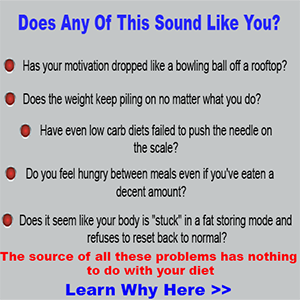Should You "Spike" This Hormone?
Well Everybody Knows
Everybody knows that the first rule of a post-training shake is that it has to be fast. You must drink it as soon as you are done or you won’t get lean. You must drink the fastest protein on earth with only the fastest carbs, no fiber or fat allowed! This usually entails people drinking whey protein, either in the form of isolates or hydrolysates, because concentrates are just too darn slow. The carbs are usually from maltodextrin or dextrose, and maybe even that fancy new waxy maize starch. Anything with fiber , fat or fructose is terrible and will decrease absorption time. Right? We know all of this because that is what we have always been told. No one denies that this is effective, as it has worked for millions of people, but does effective equal optimal? What are we actually trying to accomplish with this shake?
I do want to preface all this with the fact that there isn’t one perfect pre-and-post-training feeding for everyone. It is always context specific. The protein/carbohydrate/fat/fluid/micronutrition requirements for a 155lb endurance athlete in the midst of marathon training vs. a 225lb bodybuilder recovering from a heavy resistance-training session are quite different. Times of training year will also dictate different needs in the post-exercise recovery period. That same bodybuilder will need a different approach when they start to diet in preparation for a show. In reality proper pre-training nutrition also alters the needs of the post-training period. Having said all that, these recommendations are appropriate for the average gym-goer, looking to gain (or retain) some lean mass while trying to stay relatively lean and healthy. Your actual needs may vary.
Hierarchy of Needs
There is a distinct hierarchy of needs for pre-and-post-training recovery. The goal of pre-training nutrition is to fuel the upcoming training session, maintain hydration, boost training performance, increase muscle protein synthesis, decrease muscle protein breakdown, and spare muscle and liver glycogen. The goal of post-training nutrition is not at all dissimilar: recover from the completed training session, maintain hydration, increase muscle protein synthesis, decrease muscle protein breakdown, and replenish muscle and liver glycogen. Does 40g of whey hydrolysate with 80g grams of maltodextrin and/or dextrose optimally achieve the desired result? Let’s dig a little deeper and find out.
Do We Really Need to “Spike” Insulin?
Contrary to popular belief it is not necessary to use refined carbohydrates and sugars to “spike” insulin levels and restore muscle and liver glycogen as rapidly as possible. In fact research has shown that unrefined carbohydrates and fructose (preferably from fruit, to protect and restore liver glycogen), is every bit the equal of those high-GI carbs. This combination restores glycogen as effectively over a 24 hour time period as the high-GI carbs, and might (I emphasize might) actually lead to better next-day performance.
While it is clear that unrefined carbs are just as effective as refined high-GI carbs at enhancing recovery and restoring glycogen levels over a 24 hour period, there are certainly times when a simple high-GI shake is warranted. In particular when endurance athletes have two glycogen depleting sessions within eight hours of each other, as the speed of glycogen replenishment is imperative in this scenario. In addition to that there are times when convenience and portability are deciding factors, and pre-made high-GI powders still allow people to get in some quality nutrition before and/or after they train.
In that same vein, research has also shown that muscle protein breakdown is maximally inhibited when insulin is only 2-3 times above fasting levels. This is easily accomplished by a mixed meal or shake an hour or two before training. In reality, proper pre-training nutrition is at the very least equal, if not superior to post-training nutrition for maximal results. It sets the stage for recovery and provides fuel for the session, allowing for potentially better training; without this you are definitely not getting the most out of your sessions.
This high quality mixed meal or shake has been shown to elevate insulin levels well above those needed for maximal anabolic and anti-catabolic effects for at least 5 hours, and it remains elevated even after a training session. This tells us that worrying about spiking our insulin immediately after training with tremendous amounts of high-GI carbs is not necessary, as our insulin is already above the threshold for exerting its maximal benefit. This isn’t to say that you shouldn’t have carbs after training, you should, but you should worry more about the quality of the source, rather than exact timing or the speed of its digestion.
Protein – The Good, The Bad and The Ugly
Well what about protein you ask? There has been a lot of recent hype over whey and casein hydrolysate, and their alleged ability to drastically improve your results. However, research has shown that large doses of whey hydrolysate are actually too fast. It is in and out of the blood stream too rapidly to maximally stimulate protein synthesis and inhibit protein breakdown. In addition to failure of whey hydrolysate to showcase its superiority, casein hydrolysate has failed to live up to its billing. It has been found to be preferentially taken up by the splanchnic bed, so unless your goal is to get jacked organs it probably isn’t the way to go either. A blend of low-temperature processed whey proteins, especially pre-training where it can get into your bloodstream rapidly, is superior to either whey or casein hydrolysates, as it also contains the ever-important biologically active fractions.
The Glory of Fat
On top of protein and carbohydrates, it is often recommended that fat and fiber be restricted from the pre or post training period, again because of the idea that it would limit speed of absorption and decrease results. Research has found that consuming as much as 55 grams of fat post-training and in two subsequent meals did not inhibit glycogen replenishment. As well it has been found that whole milk was superior to skim milk post-training, even when skim milk was calorically matched. The skim milk actually contained more protein (14g to 8g) and yet the whole milk, with 8g of fat to skim’s 0g, was more anabolic. While this is just one study, clearly fat does not inhibit maximal results, even if it does decrease speed of absorption. In reality post-training fat consumption may potentially improve results!
The Finish
The best pre-and-post-training meals will contain a combination of high quality proteins, high quality carbohydrates, healthy fats and some fruit and/or vegetables. These whole foods provide a plethora of nutrients: protein, carbohydrates, fats, fiber, vitamins, minerals, antioxidants, anti-inflammatory compounds and phytonutrients that supply energy, decrease inflammation, boost recovery, maximally stimulate protein synthesis and maximally inhibit protein breakdown. However as noted above, if you have two glycogen depleting sessions within 8 hours of each other, or are a time-crunched individual who requires highly portable and convenient pre and/or post-training nutrition, a pre-made high-GI powder will work best for you.
These meals can come in the form of solid food or shakes, and the amounts of each macronutrient can vary depending on your needs as well as personal preferences and tolerances. I have personally found that liquid meals pre-training seem to be ideal because they supply rapid uptake while minimizing the volume of food in your stomach. This will make it easier to consume closer to training so that the substrates are available to your body as you train and after, rather than having to consume a solid food meal several hours before training. Post-training I have found a solid meal to be top-notch, but this can also depend on personal preference and tolerance. Many trainees do not have an appetite post-training, or are seeking to pack in as many calories as possible, and liquid meals are more feasible in these situations.
Here is a simple set up that I think would work well for most of the resistance-training population trying to maximize their results, you may need more or less food depending on many factors:
30-90 minutes Pre-Training
Smoothie
• 6 to 10oz unsweetened vanilla almond milk
• ½ to 1 scoop Vanilla JayLab Pro Protein
• 1 apple, cored and sliced
• ¼ to ½ cup old-fashioned oats
• 1 to 2 tbsp chopped walnuts
• 1 tbsp milled flax seed
• Cinnamon to taste
• Ice cubes as desired
• Blend
OR
1 Serving JayLab Pro Workout Recovery Drink
During training
• water as desired
0-90 minutes Post-Training
Whole Food Meal
• 4 to 8oz grass-fed beef
• 1 small to large sweet potato, baked, with ½ tbsp grass-fed butter and cinnamon to taste
• 1 to 2 cups frozen mixed vegetables cooked in 1 tbsp extra virgin olive oil, seasoned to taste
• 1 orange
OR
1 Serving JayLab Pro Workout Recovery Drink
These meals are all simple, delicious and healthy and will provide you with the optimal building blocks necessary for a muscular, lean and healthy physique without the myth and hype of every workout recovery supplement or whey protein supplement under the sun.
References
Erith S, et al. The effect of high carbohydrate meals with different glycemic indices on recovery of performance during prolonged
intermittent high-intensity shuttle running. Int J Sport Nutr Exerc Metab. 2006 Aug;16(4):393-404.
Stevenson E. Improved recovery from prolonged exercise following the consumption of low glycemic index carbohydrate meals. Int J Sport Nutr Exerc Metab. 2005 Aug;15(4):333-49.
Jentjens RL, Jeukendrup AE. High rates of exogenous carbohydrate oxidation from a mixture of glucose and fructose ingested during prolonged cycling exercise. Br J Nutr. 2005 Apr;93(4):485-92.
Jentjens RL, et al. Oxidation of exogenous glucose, sucrose and maltose during prolonged cycling exercise. J Apply Physiol. 2004 Apr;96(4):1285-91.
Jentjens RL, et al. Oxidation of combined ingestion of glucose and fructose during exercise. J Apply Physiol. 2004 Apr;96(4):1277-84.
Jentjens RL, Jeukendrup AE. Determinants of postexercise glycogen synthesis during short-term recovery. Sports Med. 2003;3
(2):117-44.
Bloom PC, et al. Effect of different post-exercise sugar diets on the rate of muscle glycogen synthesis. Med Sci Sports Exerc. 1987 Oct;19(5):491-6.
Burke LM, et al. Effect of coingestion of fat and protein with carbohydrate feedings on muscle glycogen storage. J Appl Physiol. 1995 Jun;78(6):2187-92.
Rennie MJ, et al. Branched-chain amino acids as fuels and anabolic signals in human muscle. J Nutr. 2006 Jan;136(1 Suppl):264S-8S.
Tipton KD, et al. Timing of amino acid-carbohydrate ingestion alters anabolic response of muscle to resistance exercise. Am J Physiol Endocrinol Metab. 2001 Aug;281(2):E197-206.
Tipton KD, et al. Stimulation of net muscle protein synthesis by whey protein ingestion before and after exercise. Am J Physiol Endocrinol Metab. 2007 Jan;292(1):E71-6.
Farnfield MM, et al. Plasma amino acid response after ingestion of different whey protein fractions. Int J Food Sci Nutr. 2008 May 8:1-11.
LaCroix M, et al. Compared with casein or total milk protein, digestion of milk soluble proteins is too rapid to sustain the anabolic postprandial amino acid requirement. Am J Clin Nutr. 2006 Nov;84(5):1070-9.
Deglaire A, et al. Hydrolyzed dietary casein as compared with the intact protein reduces postprandial peripheral, but not whole-body, uptake of nitrogen in humans. Am J Clin Nutr. 2009 Oct;90(4):1011-22.
Elliot TA, et al. Milk ingestion stimulates net muscle protein synthesis following resistance exercise. Med Sci Sports Exerc. 2006 Apr;38(4):667-74.
Fox AK, et al. Adding fat calories to meals after exercise does not alter glucose tolerance. J Appl Physiol. 2004 Jul;97(1):11-6.
Keizer HA, et al. Influence of liquid and solid meals on muscle glycogen resynthesis, plasma fuel hormone response, and maximal physical working capacity. Int J Sports Med. 1987 Apr;8(2):99-104.
Reed MJ, et al. Muscle glycogen storage postexercise: effect of mode of carbohydrate administration. J Appl Physiol. 1989 Feb;66(2):99-104.
About Jayson Hunter & Jaylab Pro

Jaylab Pro was founded by Registered Dietitian Jayson Hunter. Jayson has been recognized as one of America's foremost weight loss experts by America's Premier Experts™. He has also been featured in USA Today for this accomplishment. Jayson is also a best-selling author having co-authored multiple books in health & fitness and business growth. Jayson and the Jaylab Pro team are proud to create content that helps improve the lives of millions of people around the world. We hope you enjoy it just as much as others have.
 If you order a JayLabPro SmartShip product or any Combo Package, we will automatically ship you a new supply of the product or products you have ordered every month, starting 30 days after your initial order is shipped, and continuing until you cancel. The credit card you are using today will be billed the lowest available price for those product or products when your order is shipped, but shipping will be FREE. You may log into your customer account or call our customer service department toll-free at 1-888-9GETPRO (1-888-943-8776) between the hours of 8am – 9pm EST Mon-Fri to cancel future shipments, customize the timing of your shipments, or change the credit card used for billing.
If you order a JayLabPro SmartShip product or any Combo Package, we will automatically ship you a new supply of the product or products you have ordered every month, starting 30 days after your initial order is shipped, and continuing until you cancel. The credit card you are using today will be billed the lowest available price for those product or products when your order is shipped, but shipping will be FREE. You may log into your customer account or call our customer service department toll-free at 1-888-9GETPRO (1-888-943-8776) between the hours of 8am – 9pm EST Mon-Fri to cancel future shipments, customize the timing of your shipments, or change the credit card used for billing.









